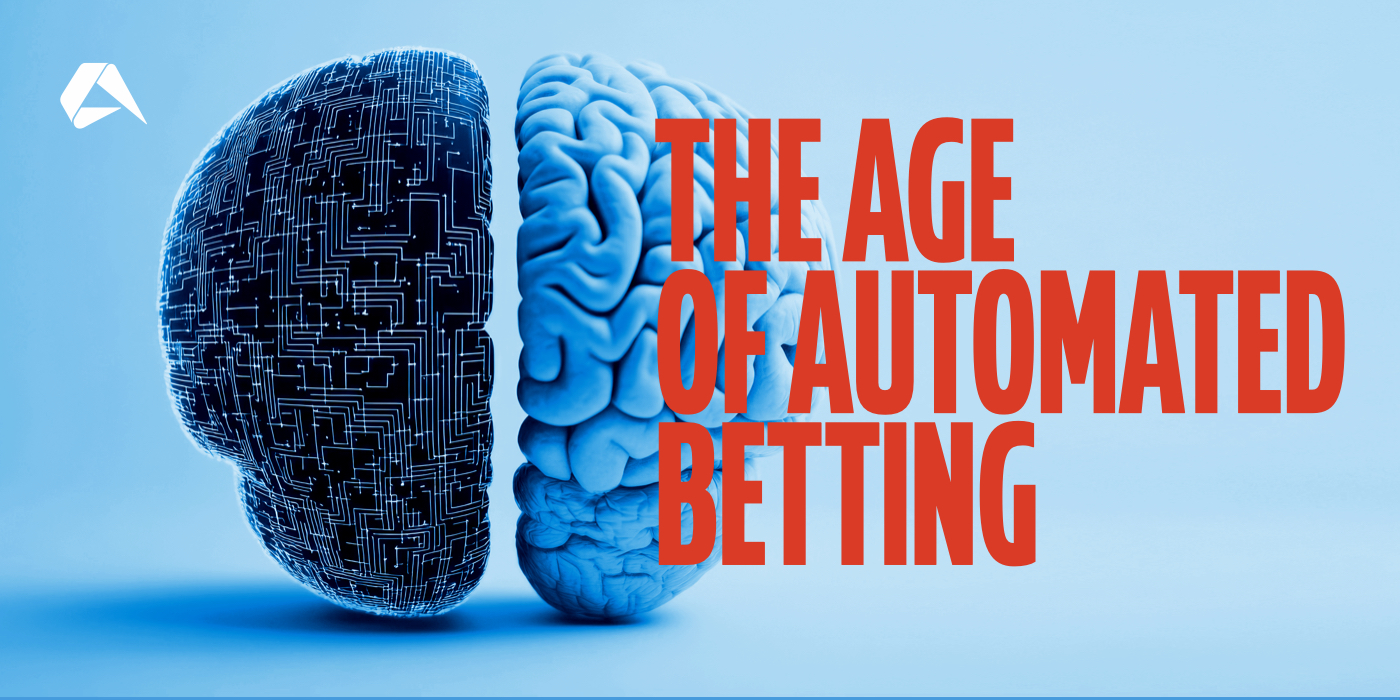Transforming Betting Platforms in 2025
Automation has reshaped the betting industry, turning once manual processes into lightning-fast, data-driven systems. Odds are now compiled in milliseconds, risk is assessed in real time, and personalised player experiences are crafted through AI-powered insights. But what does this shift mean for sportsbooks? This article explores how algorithmic innovation is redefining betting platforms and shaping the future of iGaming.
Why Bookmakers Are Embracing Algorithmic Management
The volume of data influencing odds, such as team statistics, player form, real-time game updates, and external factors like weather or injuries, is overwhelming. Human traders alone cannot analyse, interpret, and adjust odds quickly enough to keep up with live events and betting patterns. Algorithmic models handle this effortlessly, scanning vast datasets, spotting patterns, and adjusting odds in milliseconds. This not only improves pricing accuracy but also strengthens risk management, preventing sportsbooks from unnecessary exposure.
Competitive Advantages of Algorithmic Management
-
Efficiency at Scale: The automation of routine tasks, allowing trading teams to focus on strategic oversight rather than manual adjustments.
-
Fewer Errors, Better Decisions: The elimination of human miscalculations, ensuring betting lines remain accurate and competitive.
-
Higher Profit Margins: The optimisation of odds and risk management strategies to maximise long-term revenue.
How Automation is Reshaping Betting Platforms
Automation now drives every major function within a modern sportsbook, from pricing accuracy to fraud detection and customer engagement. These intelligent systems handle complex processes in real time, improving efficiency, reducing risk, and unlocking new revenue opportunities. Moreover, by streamlining operations and adapting instantly to player behaviour, automation isn’t just a convenient enhancement, it’s fast becoming the foundation of a scalable, profitable betting platform in an increasingly competitive market.
Odds Automation: The Science Behind Real-Time Pricing
Odds automation has reimagined how sportsbooks set prices, turning what was once a labour-intensive, manual process into an intelligent, data-driven system capable of making live adjustments. Rather than relying solely on human traders, today’s betting platforms use sophisticated algorithms to analyse vast amounts of data, transforming raw information into accurate and responsive odds. This shift is about optimisation of speed, precision, and efficiency to help sportsbook operators stay ahead in an increasingly competitive market.
At the core of this transformation is predictive modelling. Algorithms process historical match data, real-time game feeds, and external factors such as player injuries, weather conditions, and team form. Machine learning models can generate odds that reflect the most likely outcomes by identifying patterns and assessing probabilities. But pre-match calculations are only one side of the equation. Once a game is under way, the real challenge of adjusting odds dynamically to reflect live events begins.
Automated systems continuously consume real-time data, recalibrating odds as events unfold. For instance, in a football match, when a key player is substituted, a goal is scored, or a red card is issued, these shifts are immediately factored in, ensuring the latest odds mirror the game’s evolving reality. This real-time precision helps bookmakers stay one step ahead of sharp bettors while reducing the risk of arbitrage opportunities. For operators, the result is a more efficient operation, greater profitability, and a betting experience that remains accurate, fair, and engaging from start to finish.
Risk Management: Identifying Threats in Real Time
With wagering activity accelerating across global markets, risk management automation has become an essential line of defence, allowing operators to detect suspicious activity, control financial exposure, and protect the integrity of their platforms. By using artificial intelligence (AI) to track betting patterns in real time, sportsbooks can identify irregularities that may indicate fraud, match-fixing, or attempts to exploit odds discrepancies. This level of oversight once relied on human traders scanning data manually, but AI-powered systems now process vast amounts of information with speed and precision, ensuring potential threats are flagged before they become costly liabilities.
Central to this technology is anomaly detection. AI-driven risk management tools analyse betting behaviours across multiple markets, monitoring for telltale signs of suspicious activity. Sudden spikes in wagers on obscure events, repeated bet placements from linked accounts, or an unusual volume of high-stake bets on seemingly low-risk outcomes can all indicate the presence of betting syndicates or attempts to manipulate markets. By comparing real-time wagers against historical data and expected patterns, these systems can swiftly alert operators to potential threats, allowing investigations to begin before significant damage is done.
Beyond detection, automation enables sportsbooks to act decisively. Through the segmentation of bettors based on their activity, operators can impose tailored restrictions on accounts identified as high-risk, limiting bet sizes or temporarily suspending access to specific markets. In extreme cases, automated systems can trigger market suspensions entirely, shielding operators from sudden and unexpected financial exposure.
Enhancing the Customer Experience Through Automation
Artificial intelligence and automation also drive a new era of personalised engagement in iGaming. Operators can now deliver intelligent bonuses and promotions, instant support, and tailored interactions, enhancing player satisfaction and boosting engagement and loyalty.
Continuing on the topic of segmentation, automation has transformed the way betting platforms understand and engage with their players. AI-driven customer segmentation enables operators to categorise bettors based on wagering habits, preferred sports, spending patterns, and even risk profiles. By clustering players into well-defined groups, sportsbooks can fine-tune their marketing strategies, ensuring that promotions and content feel tailored rather than generic. Predictive analytics takes this a step further, identifying trends in player behaviour to anticipate needs before they arise. For instance, if a high-value bettor shows signs of reduced activity, AI can trigger personalised retention offers to re-engage them before they drift elsewhere.

This custom approach extends to bonus offerings, which have evolved from static promotions into dynamic, data-driven incentives. AI analyses player behaviour in real time, adjusting rewards to match individual preferences. For example, a bettor who frequently places in-play wagers might receive a tailored free bet for live markets, while a casino player drawn to high-stakes games could be offered VIP-level incentives. This shift from one-size-fits-all promotions to bespoke rewards enhances engagement and drives long-term player value.
Beyond promotions, AI is making significant strides in refining customer support. Advanced chatbots, powered by natural language processing, provide instant assistance 24/7, resolving account queries, processing withdrawals, and explaining betting rules in a conversational manner. By automating routine interactions, operators reduce response times while freeing human agents to focus on more complex issues. The result? A more responsive, personal and efficient betting experience.
Operational Efficiency Through Automation
Operational automation redefines how betting platforms manage key functions to reduce manual workload while improving speed, accuracy, and efficiency. By integrating AI-driven systems, operators can reimagine the content creation process, optimise player engagement, and refine marketing strategies without constant human intervention. What was once a labour-intensive process, whether it be crafting promotional materials, identifying high-value bettors, or triggering real-time incentives, can now be executed with precision and at scale. This shift not only saves time but also ensures that sportsbooks remain responsive to player behaviour, market fluctuations, and emerging trends.
One of the most impactful advancements is the use of AI to generate real-time content. Sportsbooks rely on fresh, engaging material to keep bettors informed and invested, but producing match previews, post-game summaries, and promotional copy at scale is a time-consuming process. AI-powered tools now automate this, instantly generating tailored content with minimal human input. Platforms can provide bettors with up-to-the-minute analysis, highlight relevant betting opportunities, and even personalise recommendations based on individual preferences. By automating content creation, operators can maintain consistency, reduce staffing costs, and ensure that every player receives timely and relevant information.
In addition to this, automation can also enhance cross-channel marketing efforts, ensuring consistency across email, push notifications, SMS, and in-app messaging. AI algorithms prioritise the most effective communication channel for each player, adjusting frequency to avoid oversaturation. By advancing these processes, online operators reduce manual workload and maximise player lifetime value through innovative, data-driven engagement strategies.
In-Game Betting Enhancements
In-play betting, also known as live betting, has undergone a significant evolution with the integration of artificial intelligence (AI), enhancing the real-time wagering experience for bettors. One notable advancement is the emergence of micro-betting opportunities, which allow bettors to place wagers on specific events within a game as they unfold. For example, AI-driven platforms can offer bets on whether the next play in an American football game will be a pass, a run, or who will score the next point in a tennis match. This granular level of betting keeps users engaged throughout the event, providing continuous opportunities to participate beyond traditional pre-game or full-game wagers.
In addition, predictive modelling has become a core element of live betting enhancements. Machine learning algorithms analyse vast datasets, including historical performance, real-time statistics, and contextual factors such as weather conditions or player form, to forecast potential outcomes during live events. For instance, based on current match dynamics, these models can predict the likelihood of a football team scoring in the next five minutes. This real-time analysis enables sportsbooks to offer dynamic odds that reflect the evolving state of play, providing bettors with informed options tailored to the live context.
The fusion of micro-betting and predictive modelling expands the user experience and presents new revenue streams for operators. Platforms can increase engagement and turnover by offering a wider array of betting options that cater to both casual and seasoned bettors. Furthermore, the rapid nature of micro-betting aligns with the preferences of modern bettors seeking instant gratification and interactive experiences. As AI technology continues to evolve, we can anticipate even more sophisticated in-game betting features that adapt to the complexities of live sports, further blurring the lines between spectatorship and participation.
Strategic Implementation of Automation
Integrating automation into iGaming operations requires a thoughtful approach that enhances efficiency without eliminating the human touch. Operators should view automation as a tool to boost human capabilities, not replace them. For instance, AI can handle data analysis and process automation, allowing staff to focus on personalised player interactions and strategic decision-making.
To maintain a personalised experience, balancing automated processes with human oversight is essential. While AI can identify patterns and predict player behavior, human judgment is vital in interpreting these insights and making positive decisions. This synergy ensures that automation enhances the player experience rather than detracting from it.
Another key factor is transparency. To promote trust and confidence in the platform, players should be informed about automated processes that affect their experience. Moreover, offering players the option to interact with human support when needed safeguards against the possibility of automation becoming a barrier to player satisfaction.
Automated systems must be regularly reviewed and updated to adapt to evolving player preferences and regulatory requirements. By involving compliance teams in developing and monitoring these systems, operators can provide automation that aligns with legal standards and ethical considerations.
In summary, the strategic implementation of automation in iGaming should focus on enhancing operational efficiency while preserving the human elements that define the player experience. By thoughtfully integrating technology with human insight, operators can create a balanced environment that incorporates the strengths of both.
AI vs. Traditional Betting Models: Which Is More Profitable?
As automation takes a stronger foothold in betting operations, questions about profitability and efficiency arise. AI-driven odds compilation uses vast datasets and predictive analytics to assess probabilities with remarkable precision. This data-centric approach often surpasses traditional methods that rely on historical data and human intuition, offering enhanced accuracy in forecasting outcomes.
Top 6 Areas Where AI Outperforms Human Traders
-
Processing Large Volumes of Data in Real Time: AI can analyse millions of data points instantly, incorporating live match stats, historical performance, and betting trends far faster than a human trader. This results in more precise and dynamic odds adjustments.
-
Eliminating Human Bias & Emotional Influence: Traders sometimes fall into cognitive biases, such as overvaluing a well-known team or underestimating an underdog. AI remains objective, pricing bets strictly on probabilities rather than reputation.
-
Adjusting Odds for Live Betting With Unparalleled Speed: AI updates in-play odds within milliseconds of an event occurring (e.g., goals, injuries, penalties), while human traders take longer to process and react. This reduces sportsbook exposure to arbitrage and value bets.
-
Detecting Anomalies & Unusual Betting Patterns at Scale: AI simultaneously monitors hundreds of thousands of bets across multiple sportsbooks, flagging suspicious activity far beyond what human oversight can achieve. This strengthens risk management and fraud detection.
-
Automating Margins & Ensuring Profitable Pricing: AI dynamically adjusts margin settings based on market conditions, keeping sportsbooks profitable by limiting liability. This ensures that pricing remains competitive while mitigating risks.
-
Scaling Across Multiple Sports & Markets Efficiently: A human trader can only focus on a limited number of events at a time. AI handles thousands of markets at once, providing efficiency at scale without requiring an expanded trading team.
However, the human element in betting cannot be entirely ignored. Experienced traders possess a sophisticated understanding and intuition, enabling them to consider qualitative factors such as team morale, weather conditions, and player injuries, which are elements that AI might overlook or underappreciate. This human insight can be invaluable in scenarios where data is limited or ambiguous.
Top 6 Areas Where Human Traders Outperform AI
-
Accounting for Psychological & Emotional Factors: AI struggles to account for human psychology, such as player motivation, team morale, and the emotional weight of high-stakes matches. Traders can identify when a team is underperforming due to pressure or external distractions that data alone would not reveal.
-
Reacting to Unexpected Events Without Data Delays: AI depends on structured data, which can cause a lag in adjusting to off-field developments (e.g., locker room conflicts, player disputes, or last-minute injuries that aren’t immediately reflected in statistics). Human traders can adjust odds faster in these cases.
-
Spotting Market Manipulation & Syndicate Betting: Sharp bettors and syndicates exploit inefficiencies in odds. While AI detects unusual betting patterns, traders understand intent, distinguishing between genuine market shifts and coordinated betting strategies aimed at exploiting automation.
-
Assessing Unquantifiable Variables: Weather changes, referee tendencies, or venue conditions affect gameplay, but not everything can be turned into a data point. When AI lacks historical context, traders rely on experience to make adjustments.
-
Customising Risk Strategies for Unique Markets: Certain markets, such as niche sports or lower-tier leagues, lack comprehensive data. Human traders use experience rather than raw statistics to price odds effectively where AI might struggle with incomplete or misleading datasets.
-
Managing Player-Specific Betting Trends: AI recognises betting patterns, but traders understand player intent. A sharp bettor placing disguised small wagers may go undetected by an algorithm, while a trader may recognise their history and pre-emptively limit exposure.
The debate between data-driven decision-making and gut feeling continues to shape sportsbook profitability. It is clear that neither AI nor human traders alone offer the perfect solution. For this reason, the most profitable sportsbooks integrate both. While automation provides efficiency and scalability, combining AI capabilities with human expertise typically yields the most profitable outcomes. This hybrid approach allows operators to harness the strengths of the two methodologies, adapting to the complexities of the betting industry.
Comparison of Pros and Cons of AI vs. Human Intuition in Sportsbook Trading
| Factor | AI Strengths | AI Weaknesses | Human Strengths | Human Weaknesses |
|---|---|---|---|---|
| Speed & Efficiency | Instantly processes vast amounts of data. | Can lag when handling unexpected, non-quantifiable events. | Reacts quickly to unforeseen changes based on experience. | Slower at processing large data sets. |
| Bias & Objectivity | Makes decisions purely based on data. | Lacks awareness of psychological factors in betting. | Understands emotions, pressure, and player motivation. | Prone to cognitive biases and subjective opinions. |
| Live Betting Adjustments | Updates in-play odds within milliseconds. | Cannot always account for context behind an event. | Interprets game flow and adjusts for situational factors. | Requires more time to react to in-game events. |
| Market Manipulation Detection | Detects unusual betting patterns at scale. | May flag false positives or miss disguised syndicate activity. | Recognises intent behind suspicious bets and syndicate play. | Cannot track as many simultaneous markets as AI. |
| Pricing & Risk Management | Automatically adjusts margins and limits exposure. | Struggles with niche markets with limited data. | Uses experience to price odds in niche or unpredictable events. | Prone to human error in risk calculations. |
| Scalability | Can manage thousands of markets simultaneously. | Cannot make independent strategic decisions. | Provides strategic oversight and judgment. | Limited in the number of events one person can monitor. |
The Blueprint for Sustained Success
“In an industry driven by speed and precision, automation is no longer optional - it’s the blueprint for sustained success.”
Operators who embrace automation improve efficiency and gain a strategic advantage in adaptability and profitability. AI-driven automation enables sportsbooks to react instantly to market fluctuations, player behaviour, and live events, ensuring that pricing, risk management, and promotions remain optimised in real time. With this level of agility, operators can expand into new markets without inflating costs, deliver hyper-personalised player experiences, and stay ahead of competitors who are still relying on manual processes.
The Shift from Manual Processes to Scalable Automation
This competitive edge is only possible because automation has replaced the labour-intensive workflows that once defined sportsbook operations. In the past, odds compilation, player segmentation, and market monitoring depended heavily on human oversight. Now, AI-driven systems handle these tasks in a fraction of the time, providing instant accuracy and efficiency at a scale that manual processes could never match. As a result, operators can rapidly expand into new markets, manage higher betting volumes, and refine their offerings without the operational strain that once limited growth.
Future-Proofing Profitability in an AI-Driven Industry
But automation isn’t just about scalability; it has become a fundamental driver of profitability. The industry is shifting beyond simple efficiency gains, with sportsbooks now relying on automation to maintain profitability in a market of shrinking margins. AI plays a key role in optimising betting margins, adjusting risk models in real time, and delivering personalised player incentives, thereby ensuring that sportsbooks remain competitive in an era where precision and speed determine profitability. Those who embrace automation streamline workflows and outpace traditional competitors in revenue generation and player engagement.
The Evolution of Player Expectations and Customisation
However, staying ahead in today’s industry means maintaining backend efficiency while meeting the expectations of modern bettors. Players now demand instant updates, tailored promotions, and real-time betting opportunities. Automation is the bridge between expectation and execution. AI-powered systems deliver real-time bet recommendations, odds adjustments, and hyper-personalised retention strategies that make every player interaction more relevant and engaging. By integrating automation across their platforms, operators enhance the player experience and build a more intuitive, responsive, and future-proofed betting ecosystem.
The industry is evolving - is your sportsbook keeping up?
Book a personalised software demonstration today and explore how Altenar’s advanced technology turns manual challenges into automated success to unlock new levels of profitability.













